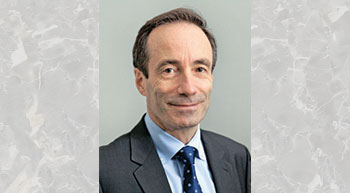There´s a huge opportunity for Metro rail projects in India. Bernard Tabary, CEO, Keolis, France´s largest private transport group, speaks on the projects in his company´s pipeline.
What is the level of Keolis´ involvement in the Indian market at this stage?
We are active in India since April 2012 when we signed the operation and maintenance contract for the Hyderabad Metro Rail with L&T, which is involved in construction of three lines of 73 kilometres under the public-private partnership (PPP) model for the past four years. The project is likely to be inaugurated later this year. As operator and maintainer of the network, we are assisting L&T in preparing for the launch. This early involvement means giving advice on design, construction, etc., in order to ensure that the operational ability of the network is optimised through leaner investment and efficient design. These in turn will help in delivering lower operating costs as well as better value on investment by extending the life span of those investments. The upstream work that we have been doing with L&T will hopefully start paying off with the launch. We will operate and maintain the network, which means employing the staff who will run the operation centre, conduct upkeep of trains and maintain other infrastructure. This includes training staff in safety standards that are contained under the project´s requirements. We are also developing their aptitude to handle customers. This is a service industry and we want passengers to choose Hyderabad Metro over cars or two-wheelers.
How will the Hyderabad Metro be different from already functioning Metro rail projects in India?
Hyderabad Metro will undoubtedly be cutting edge. Right from the start, it is going ahead with an automatic train operation or ATO, which is basically the benchmark in Metro operations in safety and reliability. It is a system that has proved itself in many cities around the world. It is so efficient and reliable that most Metro systems with ATO are run without drivers. In this instance, however, the trains will be run with drivers on board, to provide an added level of human presence to reassure the public about the safety of an otherwise unfamiliar system. The Metro rail will cater to a community which is diverse. All information will be in four languages: Hindi, English, Telugu and Urdu. It will change Hyderabad as a city and enhance its attractiveness and liveability. With a population of nine million, the city is thirsty for a project of this nature that will help weave its social fabric.
What would you consider as the key challenges of operating in the Indian environment?
The key challenge is to understand the complexity of the overall environment. You cannot just replicate solutions that have been developed in France, Australia or the UK, in India. You have to really blend them with local regulations and environment, which are very respectable and proven. This country has been running infrastructure for decades. So there is nothing to teach. One has to be conscious of the fact that the human factor is very important here. The people need to sense that there is a perspective, that there is a motive. They need to have a sense to their jobs. They need to be respected. The flows are absolutely huge to manage. You need to understand various elements such as customs and culture when you are in India. We are adjusting to Hyderabad and, hopefully, will adjust to other projects as India contains a huge opportunity in terms of Metro projects.
Is there anything that you are doing differently in India as part of that adjustment?
The Hyderabad Metro project will be operational later this year. I hope that in terms of customer interaction and in terms of inter-modality – that is, connection of Metro stations to auto-rickshaws and buses – will be so smooth that users will be attracted to it as their first choice of public transport. This is what we need to demonstrate in the months to come.
Are you looking at any other Metro projects in India?
Yes. As you are aware, India already has six Metro projects in operation, 11 under construction and 40 more planned. Some cities would want to run Metros on their own, while other cities will be keen to have assistance of a private operator, which is what we are. It is difficult for a medium or small sized network to put together the knowhow and expertise needed to run a Metro system. While Delhi Metro with its 300 kilometres can prosper on its own knowledge, I think for smaller metros it will be very useful to be able to draw from operators like us who have the experience, staffing, procedures, etc., and who, if you like, are in a position to efficiently manage the Metro system for a city. That is the message we are putting out to various cities here as an option that many choose worldwide.



Leave a Reply
You must be logged in to post a comment.